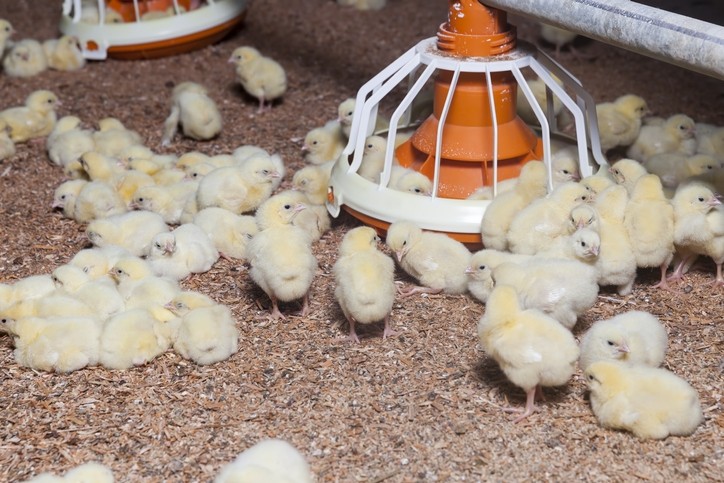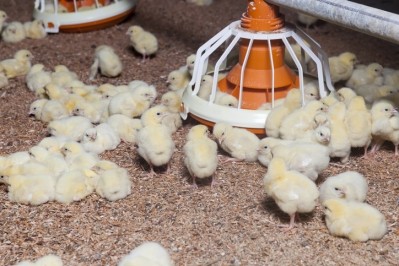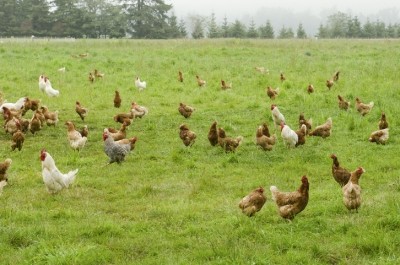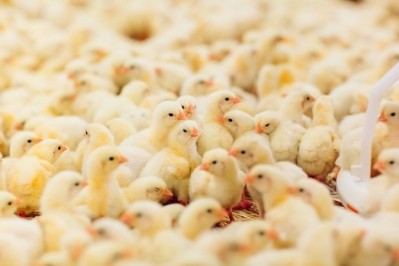Study: Modified soy protein concentrate improves indices of gut health in broilers

The team, based at Department of Animal Biosciences, University of Guelph, in Canada, and the R&D department at TripleA in Denmark, found including up to 12.5% of feeding modified soy protein concentrate (MSPC) in the starter phase increased the bird’s growth performance for the rest of the production cycle.
The scientists, writing in Poultry Science, linked the enhanced growth observed to improved gut health, enabled by the reduction of enteric pathogens.
Background
Soy protein concentrate has been evaluated as a partial or complete replacement of regular SBM or other protein sources in practical starter feeding programs of monogastric animals, but growth performance responses have been variable, noted the researchers.
A recent investigation of incorporating up to 12% of MSPC in broiler starter program showed linear improvement of day 42 body weight and carcass yield and enhanced immune status (Zhang et al., 2021), they reported.
However, additional work was required to validate those findings and record the impact on indices on gastrointestinal health, said the scientists.
“Therefore, the objective of the present study was to evaluate the effects of incorporating MSPC in starter feeding program (from hatch to day 10) on growth performance, gastrointestinal physiology, and litter moisture of broiler chickens through to 42 days of age,” they said.
Methodology
The team investigated the growth performance and physiological responses of broilers fed modified soy protein concentrate (MSPC, 72% CP), supplied by TripleA, in the starter phase.
“The general approach for producing SPC is a set of processes that involve oil extraction, washing of defatted soy flakes with ethanol for the extraction of soluble carbohydrates, and finally the thermal treatment for inactivation of antinutritional factors (Sissons et al., 1982). We evaluated further processed SPC (MSPC) with high CP solubility and low fibrous components and residual antinutritional factors (trypsin inhibitors, glycinin, ß-conglycinin, and lectin).”
A total of 1,216-day old male Ross x Ross 708 broiler chicks were placed in 32 floor pens based on body weight (BW), fed one of four corn-soybean meal-based diets formulated with 0, 7.7%, 10% or 12.5% MSPC for 10 days, and transitioned to common diets thereafter.
Feed intake, BW, and mortality were measured, they said.
A sample of birds were bled on day 10 for plasma uric acid (PUA) and subsequently necropsied for organs weight and samples of pancreatic tissues for enzyme activity, jejunal tissues for enzyme activity and histomorphology and ceca digesta for microbial activity.
Litter moisture was determined on day 36 and 42 and a sample of birds were necropsied on day 42 for breast yield and ceca digesta sample for microbial activity, added the researchers.
Results
The team found that feeding MSPC linearly increased starter growth performance.
Overall (day 0–42), MSPC linearly improved FCR.
The FCR was 1.566, 1.535, 1.488 and 1.527 for 0.0, 7.7, 10.0, and 12.5% MSPC, respectively.
Feeding MSPC linearly also increased breast yield and decreased small intestine length, gizzard digesta pH, and PUA, they said.
Pancreatic and jejunal chymotrypsin and trypsin activities and histomorphology were not influenced by the diets.
On day 10, they saw that MSPC linearly reduced ceca digesta abundance of Ruminococcaceae, E. Coli, and Clostridium but increased abundance of Bifidobacterium and the ratio of Lactobacilli and E. Coli.
Birds fed MSPC showed linear increase in abundance of Bifidobacterium on day 42, added the team.
Gut health boosted
The researchers noted that the observed greater growth performance of birds fed MSPC in starter phase agreed with a recent evaluation of MSPC in broiler chickens (Zhang et al., 2021).
“Although, conventional SPC was not incorporated in the present study, improved growth performance of MSPC birds could be linked to differences in antinutritional factors, CP solubility, and fibrous components relative to SBM or SPC samples used in previous studies (Vasconcelos et al., 2017; Zakaria and Ata, 2020).
“The inclusion of MSPC reduced dietary acid binding capacity and reduced gizzard pH which may have improved amino acid digestibility in the present study.”
The scientists also saw that when birds were transitioned to common diet on day 11, the control birds appeared to express compensatory growth in the grower phase. “Although feed intake was similar among the groups during the finisher phase, birds fed MSPC in the starter phase tended to grow better.”
The reduction in the abundance of E. coli and increase of Bifidobacterium and lactobacilli and E. Coli ratio seen in the study suggests MSPC improved indices of gut health, they said. “The effects of MSPC on ceca microbiota in 42-day old broiler chickens was not as pronounced as in starter phase, however, birds fed MSPC showed linear increase in abundance of Bifidobacterium.”
Source: Poultry Science
DOI: https://doi.org/10.1016/j.psj.2021.101147
Title: Impact of feeding modified soy protein concentrate in the starter phase on growth performance and gastrointestinal responses in broiler chickens through to day 42 of age
Authors: EG Kiarie, M Mohammadigheisar, R Akbari Moghaddam Kakhki, MH Madsen













